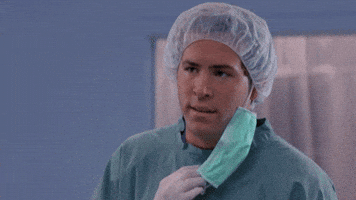- Joined
- Nov 10, 2011
- Messages
- 40
- Reaction score
- 3
What advice would you give to someone who wants to switch from community practice to academics?
How would your advice change if that someone is at an academic satellite but wants to get back to the main campus?
How about if someone wants to switch from that acaedemic satellite to a DIFFERENT academic's hospital main campus?
Should this person do research? Or is it just office political maneuvering that needs to be done?
This discussion is probably just "academic" as I am very happy in my current position, but I still want to think about what I might need to do were I want to make a switch sometime in the future.
How would your advice change if that someone is at an academic satellite but wants to get back to the main campus?
How about if someone wants to switch from that acaedemic satellite to a DIFFERENT academic's hospital main campus?
Should this person do research? Or is it just office political maneuvering that needs to be done?
This discussion is probably just "academic" as I am very happy in my current position, but I still want to think about what I might need to do were I want to make a switch sometime in the future.



